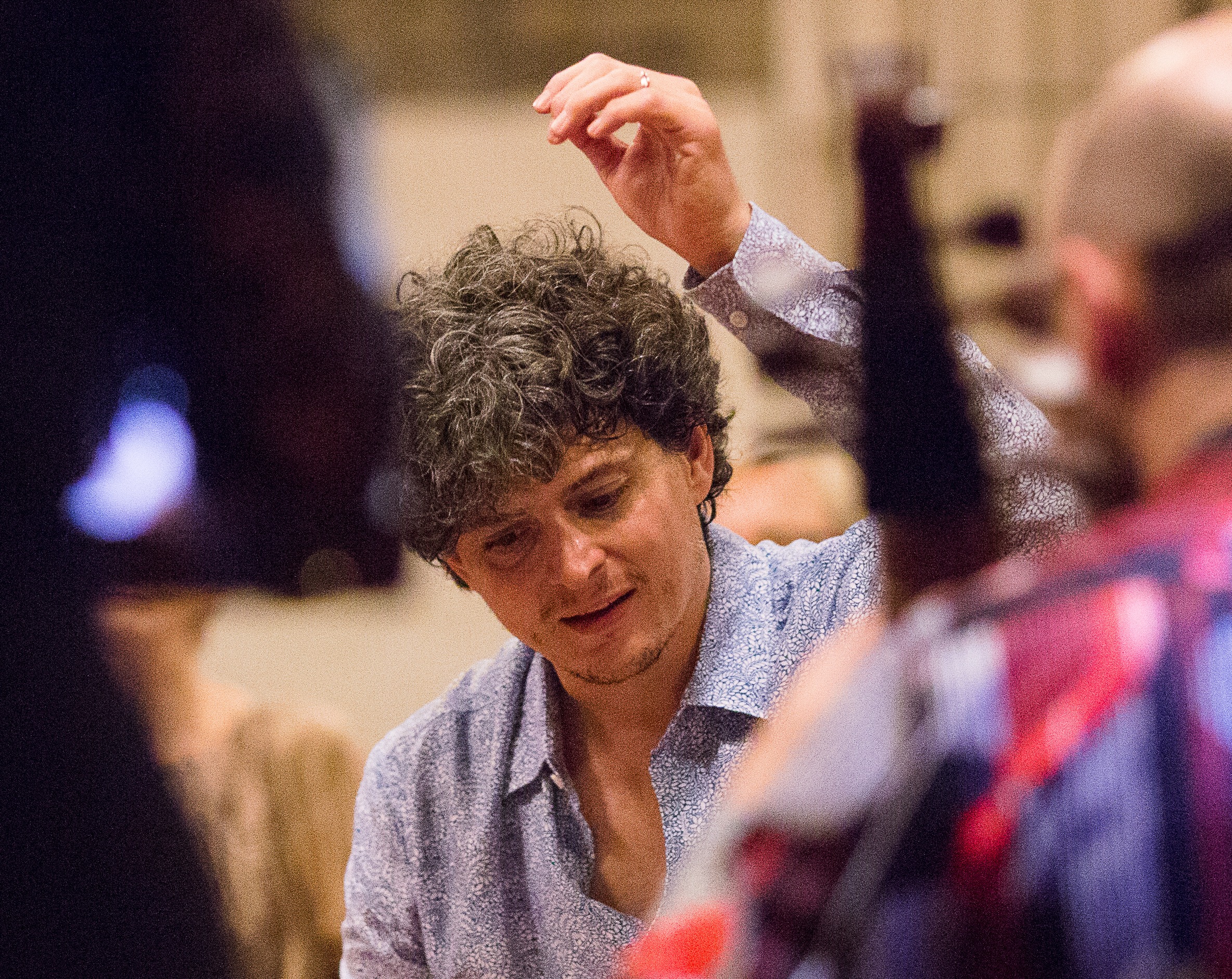This article is adapted from AQ’s special report on migration
Our musical recommendations for a spring spent indoors, from foot-tapping Brazilian soul to a Guatemalan composer’s experiments with classical sound.
Liniker e os Caramelows
Brazil
Catch Liniker e os Caramelows while you can. The soulful São Paulo-based musicians have been performing irresistibly danceable tunes since 2015, but plan to disband later this year. After a three-year hiatus from producing new music, their second — and final — album, Goela Abaixo (2019) picks up where the band left off with 2016’s Remonta.
Frontwoman Liniker and her Caramelows bandmates still offer the same occasionally quirky energy and shiny arrangements, but now the sound is more nuanced, the winds and electronics more subtle, and the songwriting more focused. The album’s profile — peaking in intensity early on — is unusual but effective. After a mysterious opening with the track “Brechoque,” the subdued atmosphere continues into the introduction of “Lava,” only for the song to turn into a party reggae-samba-surf and rock-cumbia hybrid. The energy continues to climb in “Beau,” the most soulful track in the record, featuring the band’s powerful brass section. “De Ontem,” the group-singing “Boca” and “Bem Bom” keep up the pace before things start to calm down. A set of acoustic ballads with psychedelic touches lead up to the closing anthem, “Goela.”
For karaoke fans or listeners who simply want to lounge in the shimmering sea of the Caramelows’ musicianship, most of Goela Abaixo has also been released in instrumental versions. But the lyrics are worth paying attention to. Liniker’s activism in support of LGBTQ and Afro-Brazilian rights shines throughout, with songs celebrating love and longing as a path to self-empowerment and healing. Using queer desire, tenderness and love as tools of resistance has an illustrious history in Brazil (See Caetano Veloso turning “Menino do Rio” upside down in 1979), but this is activism that can seriously swing.
Joaquín Orellana
Guatemala
On a recent trip to Guatemala City, I asked a number of non-musicians if they had ever heard the name Joaquín Orellana. Perhaps I shouldn’t have been surprised that around half of them had not only heard of him, but knew what he did for a living. That a composer of experimental classical music should be so widely recognized speaks to the impact and importance of Orellana’s work.
Orellana was born in Guatemala City in 1930 and received a traditional musical education, attending a conservatory to study violin and composition. But in 1967, his musical world was turned upside down by a fellowship to the Latin American Center for Music Studies at the legendary Instituto Di Tella in Buenos Aires, which would become a cradle of the avant garde movement on the continent. During his fellowship, Orellana was exposed to electronic music, which was then still in its infancy (computers took up entire rooms at the time). When he returned to Guatemala, where the technology he had used in Argentina wasn’t available, Orellana made up his own solutions to achieve radical sounds, creating new instruments based on Guatemala’s national favorite, the marimba. Dozens of instruments followed, big and small, made of wood, bamboo, plastic or metal — all of them both sonically and visually stunning, like the giant, curving sinusoide.
The music Orellana has been creating for his unique instruments since the 1970s is deeply connected to Guatemala’s tragic history, providing a soundscape that addresses the oppression of indigenous people and the pains of the decades-long civil war that ended in 1996. About 40 of Orellana’s instruments will be on display for the first time in the United States at Americas Society in New York in the upcoming exhibition Joaquín Orellana: The Spine of Music.
—
Zubieta is director of the music program at Americas Society








